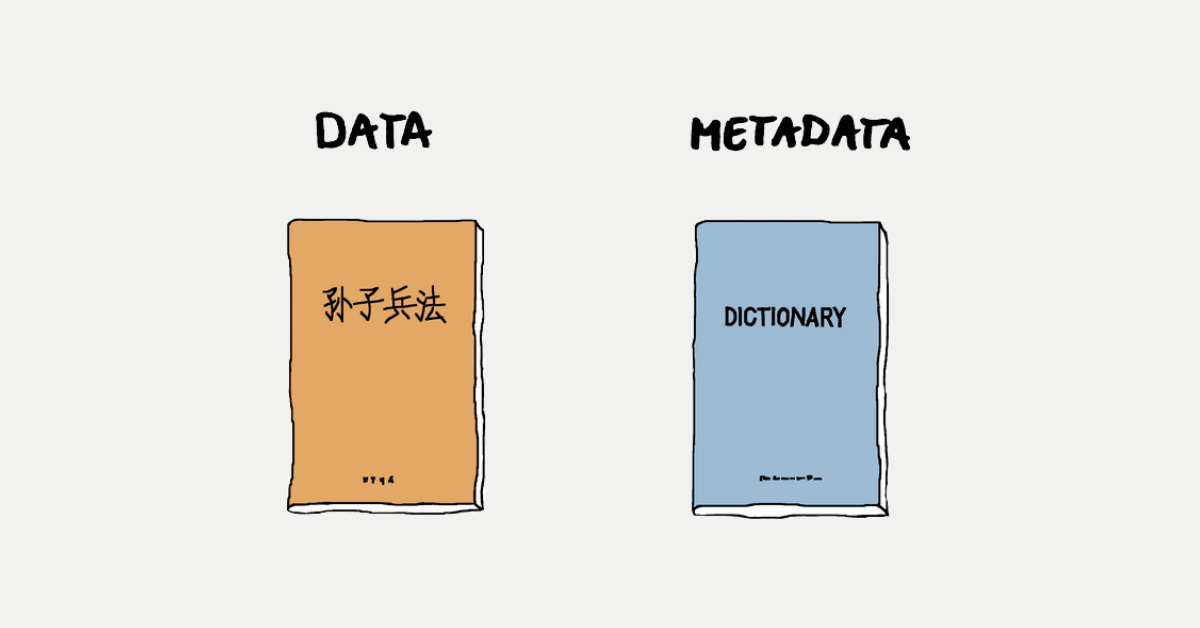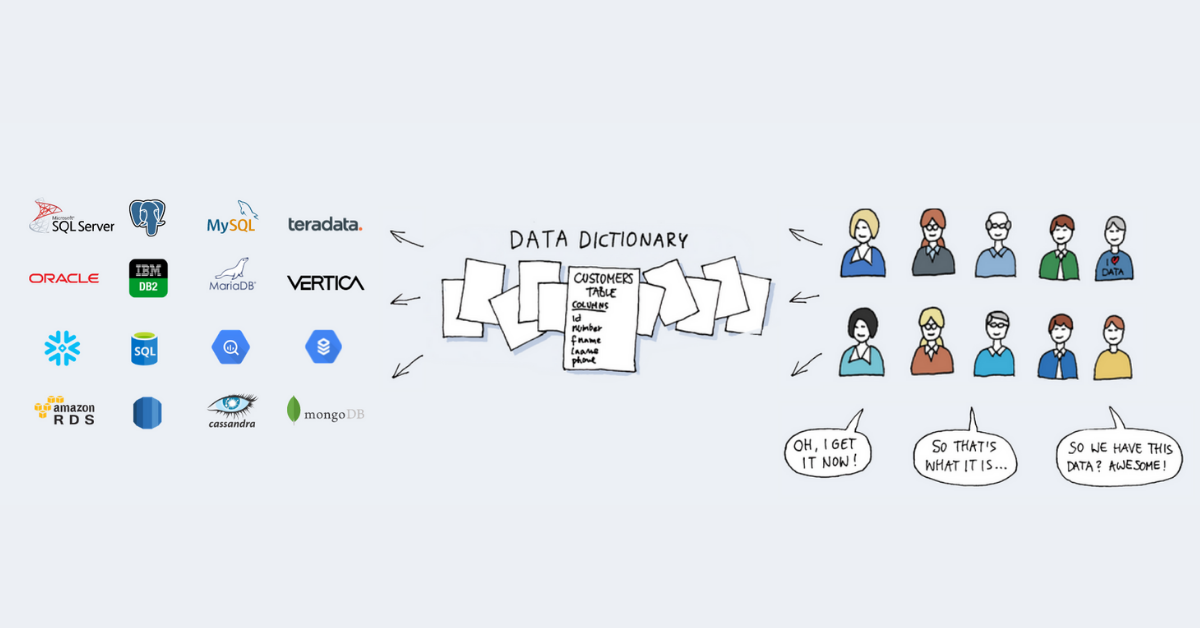When we hear the term “dictionary,” most of us think of a trusted resource that provides definitions, examples, synonyms, and rules for language. Now, extend that concept to data, and you have the aptly named data dictionary. The brilliance of this term lies in its simplicity and the way it intuitively conveys the purpose of a complex tool. Just as a language dictionary is essential for effective communication, a data dictionary is indispensable for understanding, organizing, and governing data within an organization.

In this blog, we will explore the parallels between conventional dictionaries and data dictionaries. By examining definitions, lineage, usage, and governance, we will see why the term data dictionary is so fitting—and so brilliant.
Definition: The Core of a Dictionary
At its essence, a dictionary—whether for language or data—provides clear and concise definitions. A conventional dictionary explains the meaning of a word, often providing context. Similarly, a data dictionary defines the meaning of data elements within a system.
For example:
Conventional Dictionary Entry
Word: Integrity
Definition: The quality of being honest and having strong moral principles.
Data Dictionary Entry
Data Element: Customer_ID
Definition: A unique identifier assigned to each customer in the database.
In both cases, definitions are foundational to understanding and consistency, serving as the starting point for more advanced applications.
Etymology and Lineage: Understanding Origins
Conventional dictionaries often include etymology, tracing a word’s origins and evolution. This adds depth to our understanding of language. Similarly, a data dictionary includes lineage, documenting where a piece of data originates, how it has been transformed, and where it is used.
For example:
Word Etymology
Word: Democracy
Origin: From Greek dēmos (people) + kratos (power or rule).
Data Lineage
Data Element: Revenue_Total
Lineage: Derived from the Sales_Transactions table, aggregated monthly in the Financial_Reporting system.
Just as etymology builds trust and understanding in language, lineage builds trust and understanding in data, ensuring accuracy and proper usage.
Correct Usage and Context
Dictionaries guide proper word usage, reducing ambiguity and confusion. Similarly, a data dictionary ensures data elements are used correctly and in the appropriate context.
For example:
Word Usage in a Dictionary
Word: Affect
Usage: “The weather can affect your mood.” (Affect is a verb meaning to influence.)
Data Usage in a Data Dictionary Data Element: Order_Date
Usage: “Use Order_Date to determine when an order was placed, not when it was filled or shipped.”
By providing clear usage guidelines, both dictionaries help maintain consistency and understanding.
Synonyms and Alternate Names
Conventional dictionaries often list synonyms and related terms to broaden our understanding of language. Similarly, a data dictionary documents alternate names for data elements, addressing variations in terminology across teams or systems.
For example:
Conventional Dictionary Synonyms
Word: Big
Synonyms: Large, enormous, gigantic.
Data Dictionary (or Glossary) Synonyms
Data Element: Employee_ID
Alternate Names: Emp_ID, Staff_Number, Worker_Code.
This documentation fosters collaboration and minimizes misunderstandings across teams.
Rules and Governance
Dictionaries provide rules for grammar, spelling, and usage to ensure language is applied consistently. Data dictionaries play a similar role in defining governance rules for data usage, access, and management.
For example:
Language Rules in a Dictionary
Rule: The plural of “child” is “children,” not “childs.”
Governance Rules in a Data Dictionary
Rule: Customer_Email must follow the format [email protected] and cannot contain special characters outside “.” or “_”.
By enforcing rules, both types of dictionaries maintain order and prevent misuse.
Examples for Clarity
Both dictionaries excel at providing examples to clarify usage. These examples help users understand and apply the information effectively.
For example:
Conventional Dictionary Example
Word: Run
Example: “She went for a run in the park.”
Data Dictionary Example
Data Element: Invoice_Amount
Example: “The Invoice_Amount for order #12345 is $450.00.”
Examples bridge the gap between definition and application, ensuring clarity.
A Shared Mission: Clarity and Consistency
Ultimately, conventional dictionaries and data dictionaries share the same goal: to promote clarity and consistency. A language dictionary ensures effective communication by providing a common understanding of words. A data dictionary ensures effective data governance by offering a shared understanding of data elements.
By acting as a single source of truth, a data dictionary helps organizations avoid ambiguity, enhance collaboration, and maximize the value of their data assets.
The Brilliance of the Term ‘Data Dictionary’
The term ‘data dictionary’ is a testament to the power of making the complex simple. Like its linguistic counterpart, it provides essential guidance in navigating a multifaceted system. Whether you’re a writer seeking the perfect word or a data steward managing organizational data, dictionaries ensure structure and understanding.
In today’s data-driven world, the data dictionary stands as a cornerstone of governance. It defines, documents, clarifies, and enforces the rules needed to unlock the full potential of data. Whoever coined the term data dictionary understood the importance of simplicity—and for that, we are deeply grateful.











 Richard Monk
Richard Monk



